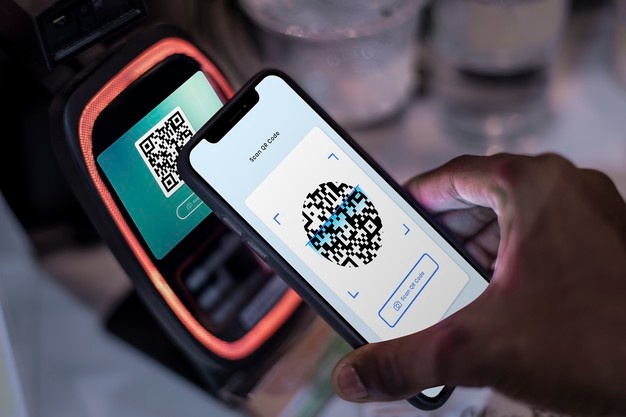March 29, 2021 4:28AM
Covid-19 vaccine sentiment among the Malaysians

Globally, the economic and social disruption caused by the pandemic has devastated millions of people around the globe at risk of falling into extreme poverty and possibly an increase in the number of undernourished people across the globe in the times to come.
Similarly, the Malaysian economy has been severely impacted by an increase in the unemployment rate, a sharp decline in tourism, which has been an important factor in stimulating the economy and depreciation of the Ringgit against the US dollar*1. The Malaysian government has taken a multitude of steps to both curb the impact of Covid-19 on the Malaysian economy and to curb the spread of the pandemic itself. One of the solutions to curb the pandemic is to rapidly vaccinate the entire Malaysian population, in which the government is working at a rapid pace.
Vodus also conducted a study earlier which measured the public sentiment on the steps taken by the government to boost the economy and to curb the pandemic and its effect on the ecommerce landscape and now Vodus has conducted a study to gauge the public sentiment on the upcoming Covid-19 vaccine with 4500 Malaysians between 27th January to 7th February 2021 to understand their perception and likeliness to get vaccinated. The data was gathered using Vodus pioneered OMTOS methodology which surveys the population via millions of consumers of online publisher websites across the Vodus Media Network, Media Prima, Astro and the Star Media Group. The data was post-stratified to reflect the Malaysian population accurately.
Vaccination among Malaysians
About ~1/3rd of the adult Malaysian population recalls being vaccinated for other diseases, the recall is higher among the younger age group and professionals or those belonging to senior corporate leadership.
Moreover, more than half of those with children recall vaccinating them and the recall is higher among the higher-income groups and white-collar workforce.
Malaysian Perception on Covid-19 Vaccine
Unlike a few countries, it is encouraging to find out that most Malaysians understand the threat of Covid-19 pandemic and the life-threatening dangers involved.
Malaysians believe that vaccines are generally effective in disease prevention and have an overall positive view about the upcoming Covid-19 vaccine and are optimistic that it will be able to effectively control the pandemic in a safe manner. However, most Malaysians do believe that further testing and collection of data is imperative in establishing the safety and efficacy of the vaccine.
Although the hearsay has affected 2/5th of the Malaysians however only 1 in 10 have a negative opinion about it.
Willingness to take the covid-19 vaccination among Malaysians
The study shows enthusiasm among Malaysians about getting the Covid-19 vaccine likely because they are hopeful that the vaccine could possibly end the pandemic and the restrictions that are put in place to curb the pandemic limiting. The majority are willing to be vaccinated if the vaccines were sponsored by the government. However, the willingness to be vaccinated drops by a half if they are required to pay for it. Moreover, 2/5th of the Malaysians are interested in taking the vaccination if they are likely to get an exemption from the government on the travel restrictions.
It is also observed that prior vaccination or a positive overview of the vaccine has a positive impact on the tendency to vaccinate. Data shows that those who recall vaccinating themselves or their children for other diseases are much more likely to vaccinate themselves and their children for Covid-19 than those who do not recall.
Trustworthy Sources of Information on Covid-19 Vaccine
Government sources are considered as the most trustworthy sources of information by most Malaysians, and it has played a constructive role in shaping a positive opinion of the general public about Covid-19 vaccine. More Malays trust the government as compared to other ethnicities while the Chinese trust the medical community and scientific data more than others.
Social media and hearsays from family and friends are not considered to be trustworthy sources of information by most despite them negatively impacting the overall opinion of Covid-19 vaccine. Hence, the government must play its role in curbing the hearsays to maintain a positive sentiment towards Covid-19 vaccine to ensure a successful vaccination drive.
Key Covid-19 Vaccine Players
Pfizer is the most well-known Covid-19 vaccine manufacturer among Malaysian respondents. This is probably due to Pfizer having the first-mover advantage and media attention. Other players are observed to have exceptionally low awareness such as AstraZeneca, SinoVac and Moderna. Pfizer is also voted by Malaysians to be the most trusted Covid-19 vaccine manufacturer without any close competitors.
Conclusion
The success of the vaccination drive in terms of uptake among Malaysians will depend on the positive opinion and affordability of the vaccines. Since the government has announced that the vaccination drive will be free of cost, the next course of action would be to maintain a positive overall opinion towards the Covid-19 vaccines. This can be achieved by curbing the hearsays and spreading a positive image through various media sources and leveraging on the trust Malaysians have in key vaccine manufacturers. This will maximize the number of Malaysians who are willing to get vaccinated and help to curb the pandemic faster.
If you would like to know more about this study or conduct a study to find out how Covid-19 pandemic has affected your market, feel free to contact us. Vodus can help you identify and devise a strategy to seize new growth opportunities presented by the pandemic.
References:
1: https://www.nottingham.edu.my/Economics/documents/2020/consolation-2.pdf













